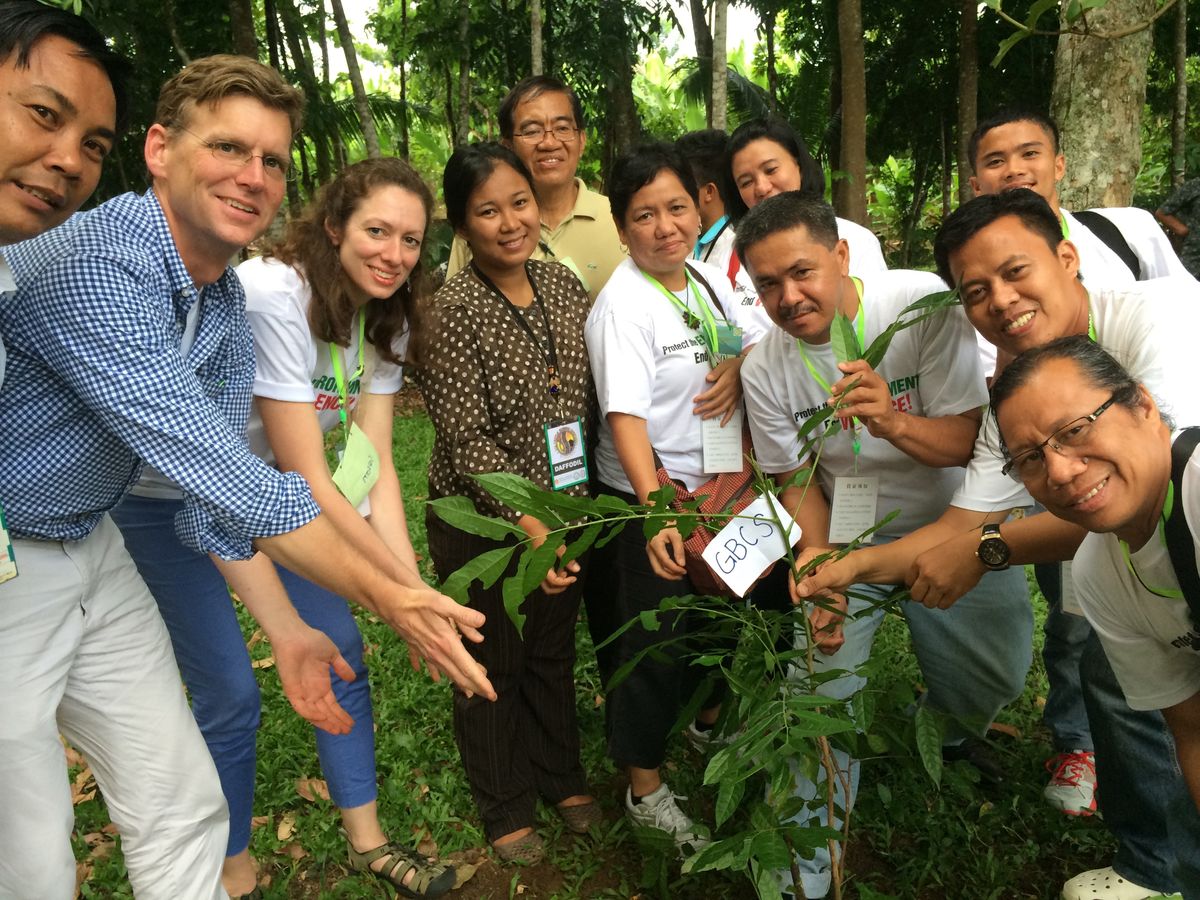Sustainability
We strive for a world where all God’s children share in the abundance of creation.

We strive for a world where all God’s children share in the abundance of creation. And we understand that our responsibility as caretakers of God’s planet includes ensuring a healthy, abundant creation for future generations. Today’s reality lies in stark contrast with this vision.
750 million people around the world live without access to safe and clean water and 1 in 9 people do not have access to sufficient food to live a healthy life.
We ask God’s forgiveness and commit ourselves to a new way of being that integrates environmental, economic and social justice.
United Methodist Book of Resolutions, 1033The world’s forests are disappearing at the rate of 13 million acres per year and every 20 minutes a distinct species of plant or animal becomes extinct.
And our patterns of overconsumption are altering the earth’s climate in unprecedented ways threatening greater disruption for future generations.
And yet God continues to invite us to participate in the healing of creation. United Methodists are answering this call by supporting changes to our individual, institutional, and civic life together. By re-evaluating our patterns of consumption and advocating for sustainable policies and practices, we are proclaiming and modeling new ways of living that support a hope-filled future for God’s people and God’s planet.
What the Bible and The United Methodist Church say:
“Thus says the Lord, ‘Stand at the crossroads, and look, and ask for the ancient paths, where the good way lies; and walk in it, and find rest for your soul.’” (Jeremiah 6:16)
“I came that they may have life, and have it abundantly.” (John 10:10)
“Is it not enough for you to feed on the good pasture, but you must tread down with your feet the rest of your pasture? When you drink of clear water, must you foul the rest with your feet?” (Ezekiel 34:18)
“Let us recognize the responsibility of the church and its members to place a high priority on changes in economic, political, social and technological lifestyles to support a more ecologically equitable and sustainable world leading to a higher quality of life for all of God’s creation.” (Social Principles, ¶160)
“While God has created an economy of abundance with sufficient resources to meet all human need, our inclinations toward greed and overuse too often have transformed sufficiency into scarcity.” (Book of Resolutions, 1001)
“Confronted with the massive crisis of the deterioration of God’s creation and called to a ministry of reconciliation between God, humankind, and creation, we ask God’s forgiveness and commit ourselves to a new way of being that integrates environmental, economic and social justice.” (Book of Resolutions, 1033)
Three Things You Can Do:
- Evaluate your consumption habits. Use an online ecological footprint tool to see how your lifestyle is impacting creation and communities nearby and around the world.
- Find ways to reduce your consumption and ensure products you are purchasing align with your values. Reflect on the question, are you contributing to an economy that values God’s people and God’s planet?
- Join with others in your community to advocate for just and sustainable practices by institutions (including faith communities) and governments.
Related Resources
For more information on sustainability, visit:
- UN Sustainable Development Goals
- United Methodist Book of Resolutions: